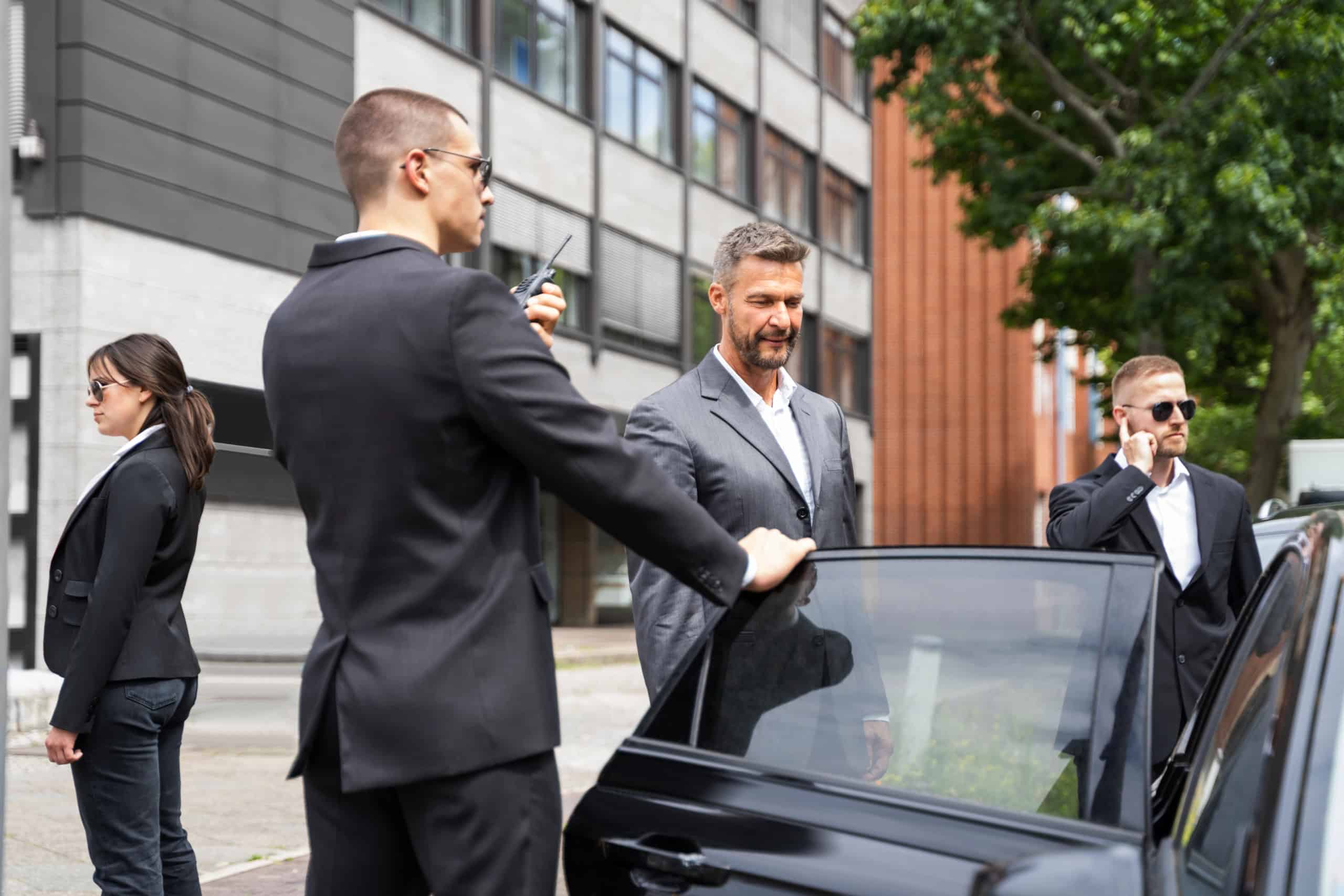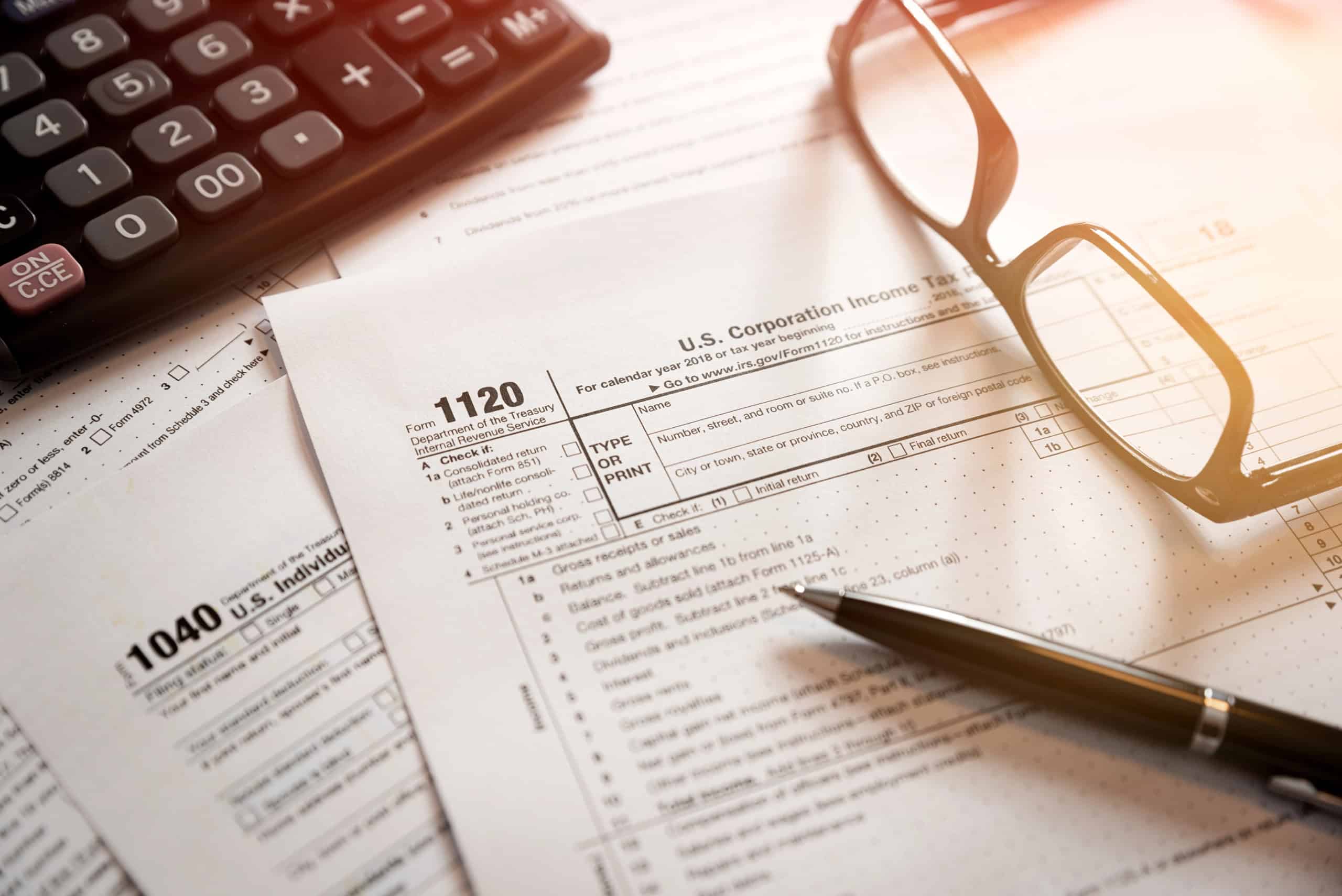What is Executive Protection?
Executive Protection (EP), also known as Close Protection (CP), refers to security and risk mitigation measures taken to ensure the safety of VIPs or other individuals who may be exposed to elevated personal risk because of their employment, high-profile status, net worth, affiliations or geographical location.
The United States Secret Service originated the term “executive protection” with the creation of the “Executive Protection Service” to guard visiting foreign dignitaries. Please watch the video below or read on to learn more about the similarity and differences between executive protection, close protection, and bodyguards.
Executive Protection vs Close Protection vs Bodyguards
Executive Protection is a term used more commonly in the USA to describe close protection services, personal protection services, or bodyguard services. The term “Executive Protection” is not as widely used in the UK or Europe. However, it is becoming ever more popular, as is the use of “Close Protection” in the USA and beyond.
So, are the terms synonymous? There may be a difference in roles, and there is undoubtedly a difference in the image. However, whether we refer to Executive Protection, Close Protection, or Bodyguard, the main objective is to save persons from danger, physical harm, and reputational damage.
Job titles also vary. An Executive Protection Agent (EPA), Executive Protection Specialist (EP), Executive Protection Operative (EPO), Close Protection Operative (CPO), Personal Protection Operative (PPO), or Bodyguard (BG) will all fulfill a similar role.
So, what about public perception? Most people have the image of a bodyguard as a big burly overpowering, and intimidating individual accompanying a celebrity; a pop star, or a movie star. Using their bulk and brawn to push and clear a path for their client or Principal through crowds of adoring fans and autograph hunters. Often casually dressed like their Principal, these celebrity bodyguards are likely to be over-friendly with their protectee and act in a more prominent, overt role. They are not genuine Executive Protection Agents who are more qualified, more professional, more experienced, and more rounded security professionals.
These “buddyguards” should have undergone the same basic or core training as an Executive Protection Agent or Close Protection Operative. EP & CP operatives typically continually train and look for career development opportunities. In contrast, the celebrity bodyguard will just hit the gym and rely on their social media, size, and strength to get work, and to escape any sticky situations!
Huge bodyguards are still required and still have a place within the protection industry. Still, their sheer size and body language can have a negative effect and impression, stigmatising those fulfilling more professional bodyguard EP/CP roles.
Of course, some clients crave the unnecessary attention that their “buddyguard” draws. There are two main different types of Principals in the security services industry: those that need close protection and those that want close protection. Those who need protection may not want it, and those who want it often do not need it!
Then there is the celebrity bodyguard who wants to be the celebrity or acts as if they are a celebrity purely because they have appeared in an array of media alongside the actual celebrity; it is easy to get swept up in their lifestyle and imagine you are as rich and famous as the person you are being paid to protect, but it is naive and unprofessional to think and act in such a manner.
So, what is a bodyguard in security industry terms? In the UK the term bodyguard (BG) refers to a specific role within a team of Close Protection Operatives. The BG is the operative closest to the Principal (VIP) within a formation, offering the immediate protection of body cover or extraction from a possible hostile situation. This position can also be known as the Personal Protection Operative (PPO). “Bodyguard” is a generalised term used by laymen to describe close protection services, those in the industry would call a lone bodyguard a solo operator or Individual Bodyguard (IBG).
Executive Protection Agent Roles and Responsibilities (US vs UK)
According to Wikipedia, much like a close protection team, a traditional executive protection team may have operatives performing in a variety of roles to protect the principal, including:
- Detail Leader – Team Leader (TL)
- Assistant Detail Leader – Second in Command (2iC)
- Tactical Commander – Operations Director
- Motorcade Lead – Security Advance Party (SAP)
- Advance Lead – Security Advance Party TL
- Mobile Agent – Patrolling Security Guard (RST)
- Static Agent – Static Security Guard
- Protective Intelligence Agent – Intelligence Analyst (OSINT)
However, the term Executive Protection Agent is increasingly used to refer to a more niche role that is the opposite of the overt bodyguard. These EPA’s are grey men or women who seamlessly blend into the corporate environment. Wearing smart business attire, EPA’s often carry out their duties without anyone knowing that they are employed to protect an individual or property.
Attributes of an Executive Protection Agent
High-net-worth individuals (HNWI), CEOs, and business executives in a corporate setting who require personal protection often employ EPA’s. Unlike movie stars and other celebrities, such people do not want to draw attention to the fact that they are of any wealth or importance. So, the EPA should look and dress like a member of the board, the Principal’s office staff, or entourage. A seasoned EP operative may not introduce themselves as security unless absolutely necessary but present themselves as an associate from the client’s office, for example.
The Executive Protection Agent will also have exceptional soft skills and communication. A top EPA should have the ability to converse on all levels with HNWIs, dignitaries, royalty, heads of state, and other prominent figures. So, they continue to blend in and remain undiscovered.
The competent EPA will have exceptional organisational skills. In addition to managing the security and protection of their Principal they could also be responsible for:
- vehicle logistics
- travel logistics
- liaising with foreign agencies pre-travel
- ensuring that all travel movements and arrangements are smooth and seamless for the Principal
All of these tasks must be completed while remaining ‘under the radar’, avoiding outside observation.
So, the overall role of an Executive Protection Agent has grown to encompass much more than just the protective requirement. Today’s EPA is more akin to being a facilitator or personal concierge. This double or triple hatting can take a considerable strain on the operative but delivers added service value. Of course, the EPA fulfilling these service roles has the advantage of knowing what the next move should be and what to expect throughout any given day but it can distract from the primary role of security.
It is ‘horses for courses’. Many operatives cannot blend in or have an incorrect mindset to cope with the additional skill-sets required to be a competent Executive Protection Agent. Their personal image may not fit into the corporate environment; visible tattoos, too muscular, or aggressive looking. Many EP operatives will be seasoned operatives that have ‘cut their teeth’ in various protective roles such as celebrity protection, touring, private families, and corporate protection, using all their years of combined experience and knowledge towards being a successful, well-rounded executive protection specialist.
The skills required to be a successful Executive Protection Operative cannot be taught on a course, it takes years, even decades of many experiences and global travel with many different types of Principals to even come close to mastering the trade.
Executive Protection Training
Executive protection is a highly specialised field within the protective security industry. Elite executive protection professionals should have specialised training in executive protection ‘skills and drills’, advanced driving, first aid, and marksmanship principles.
Regulation of Executive Protection
In the UK, private executive protection services are regulated at a national level by the Security Industry Authority (SIA). It is a criminal offence for operatives not to have a valid front-line close protection licence. UK-based operatives are not permitted to carry firearms. The situation in the United States is very different because executive protection services are regulated at the state level. Regulations vary but most states require a licence, insurance and training. Firearms regulations differ across the country but a private executive protection agent bearing arms will generally need a separate concealed carry permit.
According to Wikipedia: “the Law Enforcement Officers Safety Act of 2004 (aka HR-218) does not serve as a license for off-duty law enforcement officers to provide executive protective services. Hiring unlicensed, uninsured protection services, including those offered by off-duty law enforcement officers, creates direct liability for the client”.
Westminster Security are experts in providing Executive Protection to C-suite executives, industry figureheads, dignitaries, royalty, and heads of state. We provide Executive Protection in London, throughout the UK, and worldwide for our globally active clients. Our Executive Protection Specialists are considered amongst the best in the business with at least 20 years of experience under their belts.
Executive Protection Services
Westminster Security provides professional executive protection security services in London, the UK, and worldwide.
Since the tragic murder of UnitedHealthcare CEO Brian Thompson, has caused ripples of fear throughout the business world, the demand for executive protection services has surged, not only in the USA but in the UK and London too. This incident starkly revealed corporate leaders’ vulnerability and naivety when it comes to executive protection, which is…
Continue Reading Executive Protection and the Assassination of CEO Brian Thompson
The intersection of executive security measures and tax deductions presents an opportunity for organisations to enhance safety while reducing their tax liability. Under IRS Code 132, C-suite, executive, and family office security expenses may qualify as tax-deductible, provided they adhere to specific criteria. Companies can justify these expenses by conducting independent security surveys and implementing…
Continue Reading Executive Security, and Family Office Security Are Tax Deductible Expenses in the USA



